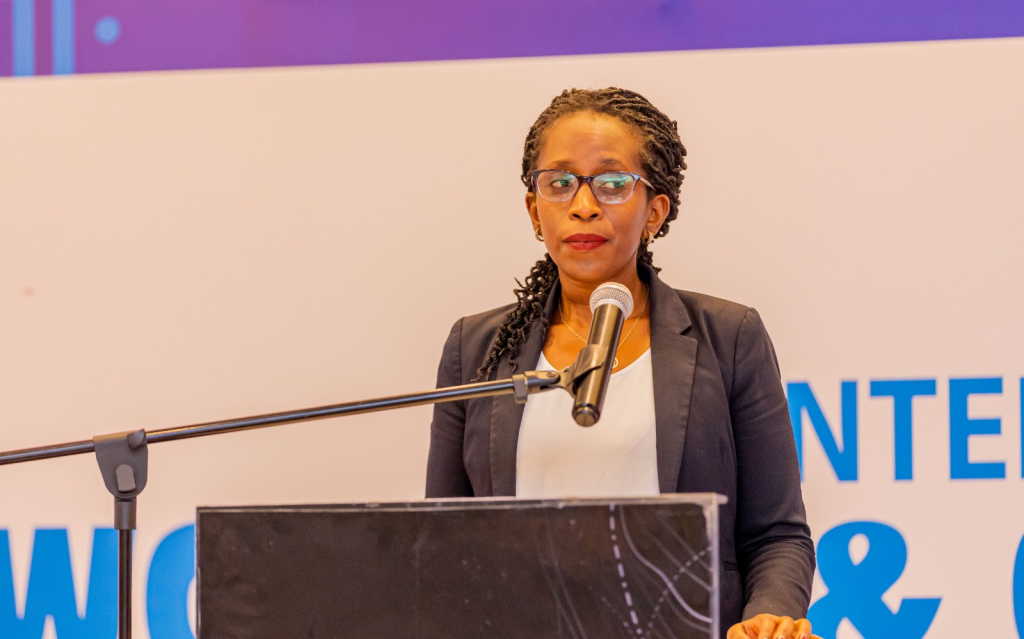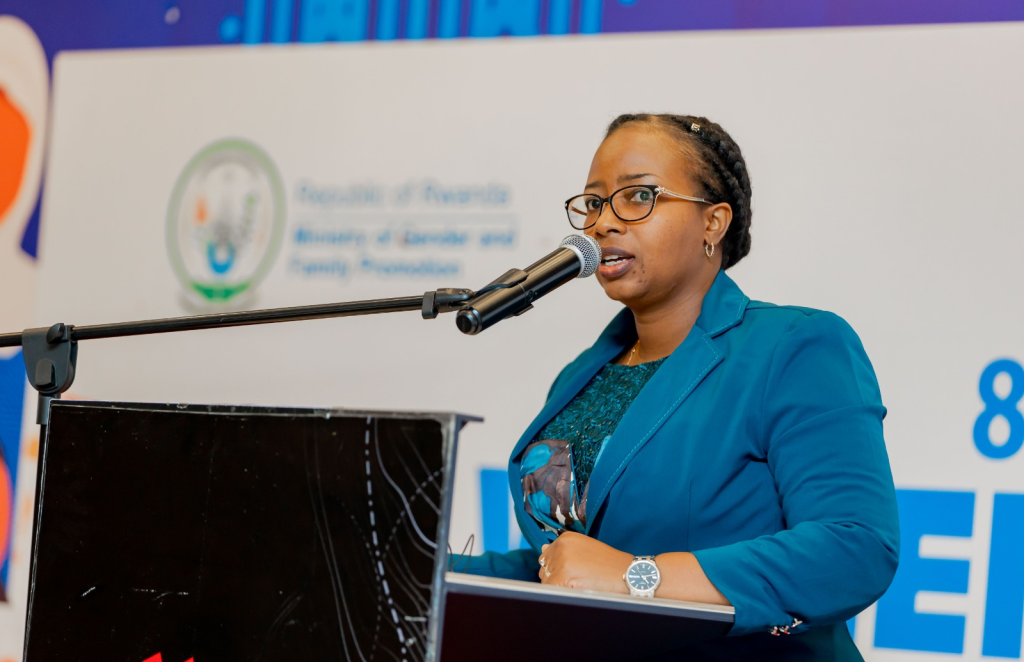Women are tracing their own paths and paving the way for the girls who come after them. As we celebrate the International Day for Women and Girls in Science it is important to note how brave and resilient they are.
During today’s celebration of the International day organized by the National Council for Science and Technology, Prof. Jeannette Bayisenge, Minister of Gender and Family Promotion, and many others believe that, despite their numbers, women in science are critical and indispensable in building future generations.
The theme for this year’s celebration is “Innovate, Demonstrate, Elevate, Advance &
Sustain– I.D.E.A.S.: Bringing Everyone Forward for Sustainable and Equitable Development”.
This event builds on the Government of Rwanda’s commitment to promote full and equal access to participation in science for women and girls and to advance their achievements in science, to recognize and celebrate Rwandan women’s achievements in science.
The event brought together categories of scientists, mainly girls and women to engage in scientific and inspiring discussions aiming at promoting equality in science, technology, and innovation for socio-economic sustainable development.
We were able to hear the stories of three incredible women whose lives are serving as role models for young girls all over Rwanda.
Many women, including these three, have overcome norms, biases, stereotypes, and inequality. They defied the overwhelming odds stacked against them.
Dr. Jenniffer Batamuliza, Dr. Aurore Nishimwe, and Dr. Annette Uwineza, to me, are not only a symbol of resilience, but also living examples to all these young girls who are struggling with self-doubt that anything is possible.
Dr. Batamuliza overcame cultural stereotypes when her parents told her that science was only for boys and men. They had a different plan for her, but she also had her own.
She is now the director of the Data Driven Incubation Hub and short professional courses at the University of Rwanda’s African Data Science Center of Excellence. She never gave up and she never backed down.
She stated that she stood firm because of her vision and her dream. “I’ll make it,” she said, “When it comes to science ability, I didn’t see any difference between boys and girls.”
Dr. Nishimwe, like Dr. Batamuliza, had challenges to overcome. Her experience was similar. There was no such thing as inclusivity in science at the time. She was the only girl in a class of 40 boys.
It was definitely intimidating. She wanted to run away from it, but she did the opposite. She stood strong, held her head high, and never gave in. She is now a Lecturer in Health Informatics at the University of Rwanda and a researcher in the field of Digital Health.
In high school Biochemistry, Dr Aurore Nishimwe was one girl out of 40 boys. Now she is one female professor out of 30! Talk about exceptional women in Science!
Dr. Annette Uwineza’s journey was similar; she still has to deal with biases and stereotypes. She claims that being a woman in science is difficult. “You can be a Director General, but people will still doubt you because you are a woman.”
Dr. Uwineza is now an Associate Professor at Rwanda University.
The Minister of Gender and Family Promotion elaborated well when she stated that women must work twice as hard as men to achieve where they are today.
She acknowledged that these women are critical to the sustainable development of our country and the world.
“When half of the population is excluded from scientific enterprise, we miss out on valuable perspectives and ideas that could change the world,” she said.
Women in science not only have an impact on our country and contribute to long-term development, but they also serve as role models and inspiration for future generations.
In Rwanda, a majority of female students shy away from STEM-related courses and the number pursuing STEM-related courses is still low compared to males.
The University of Rwanda, which is the biggest higher education institution in the country, aims to raise the percentage of STEM students to 90% in the next 10 years from the current 52%, and to increase the female STEM enrolment to 33%, which would still be below the global average.
In Rwanda, educationalists and experts attribute the low enrolment of girls and women to a culture that discourages girls from pursuing sciences on the basis that STEM is “too hard” for girls or is a male preserve.
This is what our scientists are talking about; whether they realize it or not, they are showing these young girls that anything is possible.
The only thing we can take away from their journey is that, despite the difficulties, they never gave up and never gave in. They are bloodied but unbowed, as the famous Invictus quote goes.
We at KURA think these women are exceptional.





